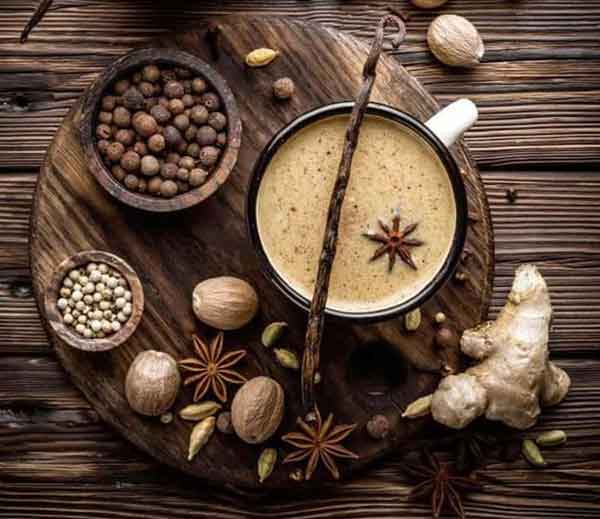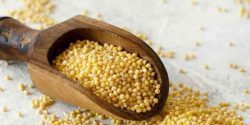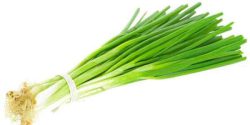Masala tea benefits for weight loss and health and cough
Masala tea
Masala tea benefits for weight loss and health and cough on Nicholi site. We hope this article will be of interest to you.
Masala tea, also known as spiced tea or chai, is a beverage made with a blend of spices and tea. It offers various potential benefits such as antioxidant properties, digestion support, immune system boost, stress relief, and respiratory health promotion. However, it has some drawbacks including caffeine content, potential digestive issues, allergies or sensitivities to spices, teeth staining, excessive sugar intake, and possible interactions with medications. Masala tea can aid in weight loss indirectly by boosting metabolism and providing a low-calorie option. Drinking it at night should be done cautiously due to its caffeine content. Masala tea powder and tea masala spice blend are convenient options for making masala tea. Masala green tea combines the benefits of green tea and spices. It can provide antioxidant effects, metabolism boost, digestion support, immune system enhancement, anti-inflammatory properties, mental alertness, relaxation, and oral health benefits.
Masala tea benefits
Masala tea, also known as spiced tea or chai, offers several potential benefits due to its blend of spices and tea base. Here are some common benefits associated with masala tea:
Antioxidant properties: Masala tea contains various spices such as ginger, cinnamon, and cloves, which are rich in antioxidants. These antioxidants help neutralize harmful free radicals in the body, which can contribute to overall health and well-being.
Digestive aid: The spices in masala tea, such as ginger, cardamom, and cloves, have traditionally been used for their digestive properties. They can help stimulate digestion, alleviate indigestion, and reduce bloating or gas.
Anti-inflammatory effects: Some spices used in masala tea, including ginger and cinnamon, possess anti-inflammatory properties. Consuming masala tea with these spices may help reduce inflammation in the body, which can be beneficial for conditions like arthritis or inflammatory bowel diseases.
Immune support: Many spices used in masala tea, such as ginger and cloves, have antimicrobial properties and are known to support immune function. They may help strengthen the immune system and protect against common infections.
Energy booster: Masala tea typically contains black tea as a base, which contains caffeine. Caffeine acts as a stimulant and can provide a temporary energy boost, increased focus, and enhanced alertness.
Stress relief: The aroma and warmth of masala tea can have a calming effect and help reduce stress and anxiety. The combination of spices, particularly cloves, and cardamom, can provide a soothing and comforting experience.
Blood sugar regulation: Certain spices used in masala tea, such as cinnamon, may help regulate blood sugar levels. This can be beneficial for individuals with diabetes or those at risk of developing the condition.
Respiratory health: Spices like ginger and cloves used in masala tea have traditionally been used to alleviate respiratory symptoms. They may help relieve coughs and congestion, and promote respiratory health.
Masala tea disadvantages
While masala tea, also known as spiced tea, is enjoyed by many for its rich flavor and aromatic spices, it’s important to be aware of potential disadvantages. Here are some possible drawbacks associated with masala tea:
Caffeine content: Masala tea is typically made using black tea as a base, which naturally contains caffeine. While moderate consumption of caffeine can have certain benefits, excessive intake can lead to issues such as increased heart rate, anxiety, sleep disturbances, and dehydration.
Potential digestive problems: The spices used in masala tea, such as ginger, cardamom, and cloves, are known for their digestive properties. However, for some individuals, these spices may cause discomfort, heartburn, or worsen existing gastrointestinal conditions like acid reflux or irritable bowel syndrome (IBS).
Allergies and sensitivities: Some people may have allergies or sensitivities to certain spices used in masala tea, such as cinnamon or cloves. If you have known allergies or sensitivities to these spices, it’s important to exercise caution or avoid masala tea altogether.
Risk of staining teeth: The dark color of masala tea, especially if consumed regularly, can potentially contribute to teeth staining. Regular brushing and oral hygiene practices can help minimize this effect.
Potential for excessive sugar consumption: Many people enjoy masala tea with added sugar or sweeteners to balance the spiciness. Consuming masala tea with excessive sugar can lead to weight gain, tooth decay, and an increased risk of chronic conditions like diabetes and cardiovascular diseases. It’s advisable to moderate your sugar intake and explore healthier alternatives like using natural sweeteners or reducing the amount of sugar added to your tea.
Interference with certain medications: Some of the spices used in masala tea, such as ginger or turmeric, can interact with certain medications. For example, ginger may interact with blood-thinning medications, while turmeric may interfere with medications that affect blood clotting. If you’re taking any medications, it’s essential to consult your healthcare provider about potential interactions before consuming masala tea regularly.
Masala tea ingredients
Masala tea, also known as spiced tea or chai, typically contains a combination of the following ingredients:
Tea Leaves: Black tea leaves are commonly used as the base for masala tea. Assam tea or Ceylon tea are popular choices, but you can use any strong black tea of your preference.
Spices: Masala tea gets its unique flavor from a blend of spices. The specific combination of spices may vary depending on personal preferences and regional variations. Common spices used in masala tea include:
Ginger: Adds a warm and spicy flavor.
Cardamom: Provides a sweet and aromatic taste.
Cinnamon: Imparts a warm and slightly sweet flavor.
Cloves: Add a strong, pungent, and slightly sweet taste.
Black Peppercorns: This can add a subtle heat to the tea.
Star Anise: Offers a distinct licorice-like flavor.
Fennel Seeds: Contributes a sweet and herbal taste.
Nutmeg: Provides a warm and nutty flavor.
Saffron (optional): Adds a subtle floral aroma and golden color.
Milk: Masala tea is typically made with milk, which helps create a creamy and rich texture. You can use regular dairy milk or substitute it with non-dairy alternatives like almond milk, soy milk, or coconut milk based on your preference.
Sweetener (optional): Some individuals prefer to add sweeteners like sugar, honey, or jaggery to balance the spiciness of masala tea. The amount of sweetener can vary according to personal taste.
Water: Water is used as the primary liquid to steep the tea leaves and spices.
Best time to drink masala tea
Masala tea, or spiced tea, can be enjoyed at various times of the day based on personal preference and lifestyle. Here are a few popular times when people often choose to drink masala tea:
Morning: Masala tea is commonly consumed in the morning as a pick-me-up to start the day. The blend of spices and the caffeine content in black tea can help provide an energy boost and increase alertness. It can be a flavorful alternative to regular black tea or coffee.
Afternoon: Many people enjoy a cup of masala tea during the afternoon as a refreshing beverage. The aromatic spices can help relax and rejuvenate, making it a perfect choice for a mid-day break. It can also be served with snacks or light refreshments.
Evening: Masala tea is often savored in the evening, particularly in South Asian cultures, as a way to unwind and socialize. It can be enjoyed with family or friends as a warm and comforting drink after a long day. The blend of spices can provide a soothing effect and help with relaxation.
Cold Weather: Masala tea is particularly popular during colder months or in regions with cooler climates. The warming spices in masala tea can help combat the chill and provide a comforting sensation. It can be enjoyed as a cozy beverage during autumn or winter evenings.
Is masala tea good for weight loss?
Masala tea, by itself, is not a direct solution for weight loss. However, some of the ingredients commonly found in masala tea, such as ginger and cinnamon, may offer certain benefits that can support weight loss efforts when combined with a healthy lifestyle. Here’s how masala tea can potentially contribute to weight loss:
Boosts metabolism: Certain spices used in masala tea, such as ginger and black pepper, have been associated with a slight increase in metabolism. A higher metabolic rate can help your body burn calories more efficiently.
Provides satiety: The warmth and spices in masala tea can help create a sense of satiety or fullness, which may help curb cravings and prevent overeating. This can indirectly support weight loss by promoting portion control and reducing calorie intake.
Low-calorie options: If you prepare masala tea with minimal or no added sugar, it can be a low-calorie beverage option compared to sugary drinks like soda or certain coffee beverages. Replacing high-calorie beverages with masala tea can contribute to a calorie deficit, which is essential for weight loss.
Encourages hydration: Staying adequately hydrated is crucial for overall health and weight management. Masala tea, when consumed without excessive amounts of sugar or milk, can contribute to your daily fluid intake, keeping you hydrated.
Can I drink masala tea at night?
While it is possible to drink masala tea at night, it’s important to consider the caffeine content and its potential impact on sleep. Masala tea is typically made using black tea as a base, which contains caffeine. Here are some factors to consider when deciding whether to drink masala tea at night:
Caffeine sensitivity: Different individuals have varying levels of sensitivity to caffeine. Some people are more sensitive and may experience difficulty falling asleep or disrupted sleep if they consume caffeine in the evening. If you are particularly sensitive to caffeine, it may be advisable to avoid consuming masala tea close to bedtime.
Decaffeinated alternatives: If you enjoy the flavors of masala tea but want to avoid the stimulating effects of caffeine, you can opt for decaffeinated black tea or herbal tea blends that incorporate similar spices. This way, you can still enjoy the taste and aroma of masala tea without the potential sleep disturbances.
Personal sleep patterns: Consider your own sleep patterns and how caffeine affects your sleep quality. If you find that consuming masala tea in the evening does not interfere with your sleep or make you feel restless, you may be able to tolerate it without issues. However, it’s important to be mindful of your body’s response and adjust accordingly.
Caffeine tolerance: Some individuals may have a higher tolerance for caffeine and can consume masala tea without experiencing significant sleep disruptions. However, it’s worth noting that even with higher tolerance, consuming caffeine too close to bedtime can still affect sleep quality for some people.
If you choose to drink masala tea at night, you could consider a few strategies to reduce the caffeine impact:
Opt for decaffeinated black tea or herbal tea blends.
Brew the tea for a shorter duration to reduce caffeine extraction.
Use fewer tea leaves or a smaller tea bag to decrease the caffeine content in your cup.
Consider switching to caffeine-free herbal teas or infusions for a soothing bedtime beverage.
Masala tea powder
Masala tea powder is a pre-packaged blend of spices and tea leaves that can be used to make masala tea easily and conveniently. It typically contains a combination of ground spices and tea leaves, allowing you to quickly prepare a flavorful cup of masala tea without the need to individually measure and mix the spices.
The specific ingredients in masala tea powder can vary based on the brand and regional variations, but common ingredients may include:
Tea Leaves: The base of masala tea powder is usually black tea leaves. Assam or Ceylon tea varieties are commonly used for their strong and robust flavors.
Spices: The spice blend in masala tea powder can include various ingredients such as:
Ginger: Adds a warm and spicy flavor.
Cardamom: Provides a sweet and aromatic taste.
Cinnamon: Imparts a warm and slightly sweet flavor.
Cloves: Add a strong, pungent, and slightly sweet taste.
Black Peppercorns: This can add a subtle heat to the tea.
Nutmeg: Provides a warm and nutty flavor.
Other spices: Depending on the specific blend, other spices like star anise, fennel seeds, or saffron may be included.
Some masala tea powders may also contain additional ingredients such as dried milk powder, sugar, or flavor enhancers. It’s important to check the packaging or ingredient list for the specific contents of the masala tea powder you are using.
To make masala tea using the powder, simply add the desired amount of powder to boiling water, simmer for a few minutes, and then add milk and sweetener if desired. The masala tea powder helps to infuse the flavors of the spices into the tea quickly and conveniently.
Note that masala tea powder is a convenient option, but some people prefer to make masala tea from scratch using whole spices and loose tea leaves for a more personalized flavor.
Masala green tea benefits
Masala green tea combines the benefits of green tea with the aromatic spices found in masala tea. Here are some potential benefits associated with consuming masala green tea:
Antioxidant-rich: Green tea is known for its high antioxidant content, particularly catechins, which have been linked to various health benefits. These antioxidants help protect the body against oxidative stress, which can contribute to chronic diseases and premature aging.
Boosts metabolism: Green tea has been studied for its potential to increase metabolism and promote weight loss. The combination of green tea’s catechins and the spices in masala green tea, such as ginger and black pepper, may have a slight thermogenic effect, which can help burn calories more efficiently.
Supports digestion: The spices commonly found in masala green tea, such as ginger, cinnamon, and cardamom, are known for their digestive properties. They can help soothe the digestive system, alleviate indigestion, and promote healthy digestion.
Immune support: Many of the spices used in masala green tea, such as ginger, cloves, and cinnamon, have antimicrobial and immune-boosting properties. Consuming masala green tea may help strengthen the immune system and protect against common infections.
Anti-inflammatory effects: Both green tea and the spices in masala green tea, such as ginger and cinnamon, possess anti-inflammatory properties. These compounds may help reduce inflammation in the body, which is associated with various chronic diseases.
Mental alertness and relaxation: Green tea contains a moderate amount of caffeine, which can provide a mild energy boost and increase alertness. The combination of green tea’s caffeine and the soothing effects of the spices in masala green tea can help improve mental focus and promote a sense of relaxation.
Oral health: Green tea has been associated with oral health benefits, including reducing the risk of dental cavities, gum disease, and bad breath. The antibacterial properties of green tea catechins may help inhibit the growth of oral bacteria.
How to use tea masala?
Tea masala, also known as chai masala or masala spice blend, is a mixture of spices used to add flavor and aroma to masala tea or chai. Here’s how you can use tea masala to enhance your tea:
Prepare your tea: Start by brewing a cup of black tea using your preferred method. You can use loose tea leaves or tea bags, depending on your preference.
Add milk: Once the tea is brewed, you can add milk to your desired taste. The amount of milk can vary depending on how creamy you prefer your tea.
Add sweetener (optional): If desired, you can add sweeteners such as sugar, honey, or jaggery to the tea. Adjust the amount to suit your taste.
Add tea masala: Now comes the key step. Sprinkle a pinch or more (according to your preference) of tea masala into the prepared tea. The amount can vary based on the intensity of flavor you desire.
Stir well: Give the tea a good stir to ensure that the tea masala is evenly mixed.
Strain and serve: If you used loose tea leaves, strain the tea to remove the leaves. Pour the prepared masala tea into your cup and serve hot.
Note: The exact ratio of tea masala to tea can vary based on personal preference and the specific blend of spices in the masala. It’s recommended to start with a smaller amount of tea masala and adjust it according to your taste preferences.
Alternatively, you can also add tea masala directly to the water while brewing the tea, along with the tea leaves, and proceed with the rest of the steps mentioned above.
Keep in mind that tea masala typically contains strong spices, so it’s a good idea to start with a smaller amount and gradually increase it until you find your desired flavor profile. Each masala blend may have a slightly different combination of spices, so you can also experiment with different brands or make your own blend at home using spices like ginger, cardamom, cinnamon, cloves, and more.






















